Immuno-Oncology Editorial Advisory Board
Editorial Advisory Board
Senior Editors
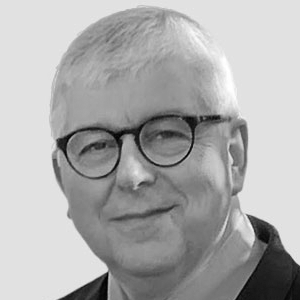
Jon Wigginton, MD
Chief Medical Officer, Cullinan Oncology; Advisor, MPM Capital
Jon Wigginton, MD currently serves as portfolio Chief Medical Officer, Cullinan Oncology and Advisor at MPM Capital. Dr. Wigginton most recently served as the Chief Medical Officer at MacroGenics, where he led the company's evolution of a fully-integrated, clinical-stage cancer immunotherapy organization. This included the translation of ten new molecules into the clinic, including early phase and/or proof-of-concept studies with bispecific molecules, checkpoint inhibitors, Fc-optimized antibodies and antibody drug conjugates, as well as the design and execution of registration-directed studies. Previously, he served as the Therapeutic Area Head, Immuno-Oncology, Early Clinical Research at Bristol-Myers Squibb. There, he oversaw early clinical development of the BMS Immuno-Oncology portfolio, served in governance role for discovery research, and co-led the BMS International Immuno-Oncology Network (II-ON). These efforts included several studies defining proof-of concept for both anti-PD-1 and anti-PD-L1 antibodies in patients with a variety of solid tumors, and for the anti-PD-1/anti-CTLA-4 combination in patients with melanoma. During his academic career, Dr. Wigginton served as Head of the Investigational Biologics Section, Center for Cancer Research, NCI, where he led an integrated basic, translational and clinical research effort focused on combination immunotherapy in preclinical models and early clinical studies. Dr. Wigginton also served previously as president of the Society for Immunotherapy of Cancer (SITC). Dr. Wigginton received his M.D. and B.S. in Biology, with distinction, from the University of Michigan.
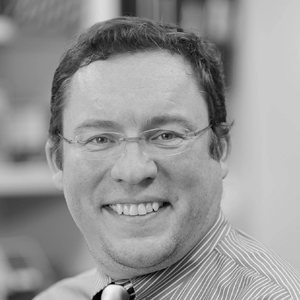
Renier J. Brentjens, MD, PhD
Deputy Director; The Katherine Anne Gioia Endowed Chair in Cancer Medicine; Chair, Department of Medicine; Professor of Oncology, Departments of Medicine and Immunology, Roswell Park Comprehensive Cancer Center
Dr Brentjens obtained an MD/PhD (microbiology) from SUNY Buffalo, completed residency in medicine at Yale New Haven Hospital, and a medical oncology fellowship at Memorial Sloan Kettering Cancer Center (MSKCC). Currently, Dr Brentjens is an member on the faculty at MSKCC and an attending physician on the leukemia service. As a medical oncology fellow during his training at MSKCC, Dr Brentjens initiated the initial pre-clinical studies demonstrating the potential clinical application of autologous T cells genetically modified to target the CD19 antigen through the retroviral gene transfer of artificial T cell receptors termed chimeric antigen receptors (CARs). Following completion of his medical oncology training, Dr Brentjens became the principle investigator of his own laboratory. As a PI, Dr Brentjens successfully translated these studies to the clinical setting treating patients with relapsed CD19+ tumors including chronic lymphocytic leukemia (CLL) and B cell acute lymphoblastic leukemia (B-ALL). Ongoing pre-clinical research in the laboratory is focused on the further development of CAR modified T cells designed to overcome the hostile immunosuppressive tumor microenvironment through the generation of “armored CAR T cells” currently being translated to the clinical setting as second generation CAR modified T cell clinical trials. Additionally, work in the Brentjens’ lab has expanded this CAR technology to target additional tumor antigens expressed on other malignancies including solid tumors.
Editorial Advisory Board Members

Fernanda I. Arnaldez, MD
Executive Global Product Leader - Early Development, Oncology Research and Development, AstraZeneca
Drug Development and Experimental Therapeutics Senior Executive, with extensive leadership experience and proven success in clinical development (early and late stage, IND, BLA, regulatory interactions), pediatric hematology/oncology and molecular oncology. Trained in the US and Board Certified in Pediatrics and Pediatric Hematology/Oncology; I hold over twenty years of expertise in rare diseases, oncology and IO, biologics and small molecules drug development experience in Government, Academia and Industry. In my current position, I lead teams are responsible for the development of Immunotherapy, Cell Therapy and ADC assets within the Early Oncology Research and Development Organization, from candidate lead selection to phase III-enabling clinical trials. I am responsible and accountable for strategy, development and execution of the portfolio across multiple line functions. My passion lies in improving outcomes for those affected by cancer and contributing to bring to the clinic new and better therapies, able to have a meaningful impact in their lives.
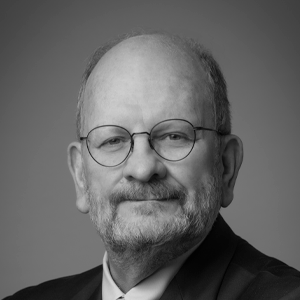
Roy D. Baynes, MD, PhD
Senior Vice President and Head, Global Clinical Development, Chief Medical Officer, Merck Research Laboratories
Roy Baynes is Senior Vice President Global Clinical Development and Chief Medical Officer at Merck Research Laboratories in Rahway, New Jersey. He was previously Senior Vice President of Oncology, Inflammation and Respiratory Therapeutics at Gilead Sciences and prior to that was Vice President Global Clinical Development and Therapeutic Area (TA) Head for Hematology / Oncology, at Amgen Inc. In the early years of his tenure at Amgen before becoming TA head of Hematology / Oncology in Clinical Development he was TA head for Hematology / Oncology in Global Medical Affairs. He graduated as a Medical Doctor and obtained a Master of Medicine and Doctor of Philosophy from the University of the Witwatersrand, Johannesburg, South Africa. He has had a long and distinguished career in the haematology-oncology-and stem cell transplantation fields, including drug development, basic research, clinical practice, clinical research, teaching and administration. He is a member of many international societies, including the American Society of Hematology (ASH) and the American Society of Clinical Oncology (ASCO), and has authored some 150 publications. He has been recurrently named among America’s top physicians. Before joining Amgen in 2002, he was the Charles Martin Professor of Cancer Research at the Barbara Ann Karmanos Cancer Institute, an NCI designated Comprehensive Cancer Center, at Wayne State University, Detroit, Michigan, USA.
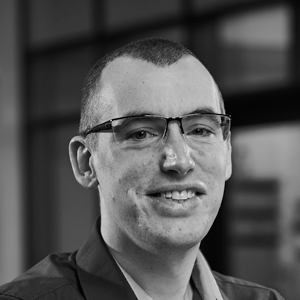
Dr Adam Brown, PhD
Lecturer in DNA Engineering, University of Sheffield
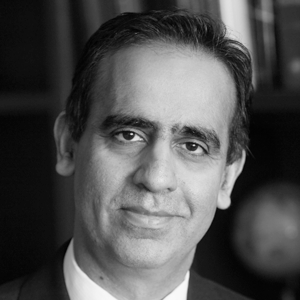
Preet M. Chaudhary, MD, PhD
Chief, Jane Anne Nohl Division of Hematology and Center for the Study of Blood Diseases; Director, Blood and Marrow Transplant Program; Professor of Medicine; Ronald Bloom Family Chair in Lymphoma Research, Norris Comprehensive Cancer Center, University of Southern California, Keck School of Medicine
Professor of Medicine, Chief of the Jane Ann Nohl Division of Hematology and Center for the Study of Blood Diseases and the Ronald Bloom Family Chair in Lymphoma Research at the Keck School of Medicine of the University of Southern California. He is also the Director of USC Blood and Marrow Transplant Program. He is a nationally recognized physician-scientist with research interests in several areas of cancer including Chimeric Antigen Receptor modified T cells (CAR-T), cancer drug resistance, biology of normal and leukemic hematopoietic stem cells, programmed cell death and novel therapies for leukemia, lymphoma, multiple myeloma and solid tumors. Dr. Chaudhary obtained his medical degree from Delhi University, Maulana Azad Medical College. He then received a PhD from the University of Illinois at Chicago where he did pioneering research in the isolation and characterization of bone marrow stem cells and mechanism of multi-drug resistance to cancer chemotherapy. Subsequently, Dr. Chaudhary did residency training in Internal Medicine at the Northwestern University in Chicago and fellowship training in Hematology-Oncology at the Fred Hutchinson Cancer Research Center and the University of Washington, Seattle. As a part of his postdoctoral training, Dr. Chaudhary worked in the laboratory of Dr. Leroy Hood, where he was involved in the isolation and characterization of several novel genes involved in the regulation of apoptosis and immune response. His recent work is focused on developing next generation chimeric antigen receptors for the treatment of cancer. Dr. Chaudhary has authored or co-authored numerous publications in such outstanding journals as Cell, Immunity, JNCI, Blood and PNAS, and holds six US patents in the areas of hematopoietic stem cell purification, multi-drug resistance to cancer chemotherapy, and cellular signaling. A number of his patent applications in the areas of Chimeric Antigen Receptors (CAR-T) and cancer immunotherapy are pending. One of his patent applications (WO1999011791A2) was the top cited cancer related patent between1993-2013. Dr, Chaudhary has been continuously funded by NIH R01 grant since 2000 and has been elected to the American Society for Clinical Investigations (ASCI), an honor society of physician-scientists.
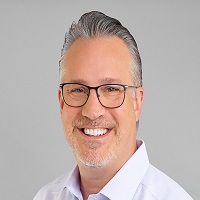
John Desjarlais, PhD
Senior Vice President, Research and Chief Scientific Officer, Xencor, Inc.
Dr. Desjarlais since joining Xencor in 2001, Dr. Desjarlais has overseen the company’s engineering, discovery, and preclinical work on antibodies and other proteins. With his coworkers, Dr. Desjarlais has developed several novel technologies for the optimization of antibodies and other proteins, including a platform for generation of bispecific antibodies, and has led the discovery of multiple therapeutic antibody candidates, including CD3 bispecific antibodies, checkpoint bispecific antibodies, and cytokine-Fc fusions for treatment of a variety of diseases. Dr. Desjarlais oversees all of Xencor’s discovery research and preclinical activities, from project conception and candidate generation through preclinical proof-of-concept and early development. Prior to Xencor, Dr. Desjarlais was an Assistant Professor of Chemistry at Penn State University (1997-2001), where he developed and tested methods for the de novo design of protein sequences. He began his work in the field of protein design as a Jane Coffin Childs Fellow at U.C. Berkeley. Dr. Desjarlais holds a Ph.D. in Biophysics from the Johns Hopkins University and a B.S. degree in Physics from the University of Massachusetts, Amherst.
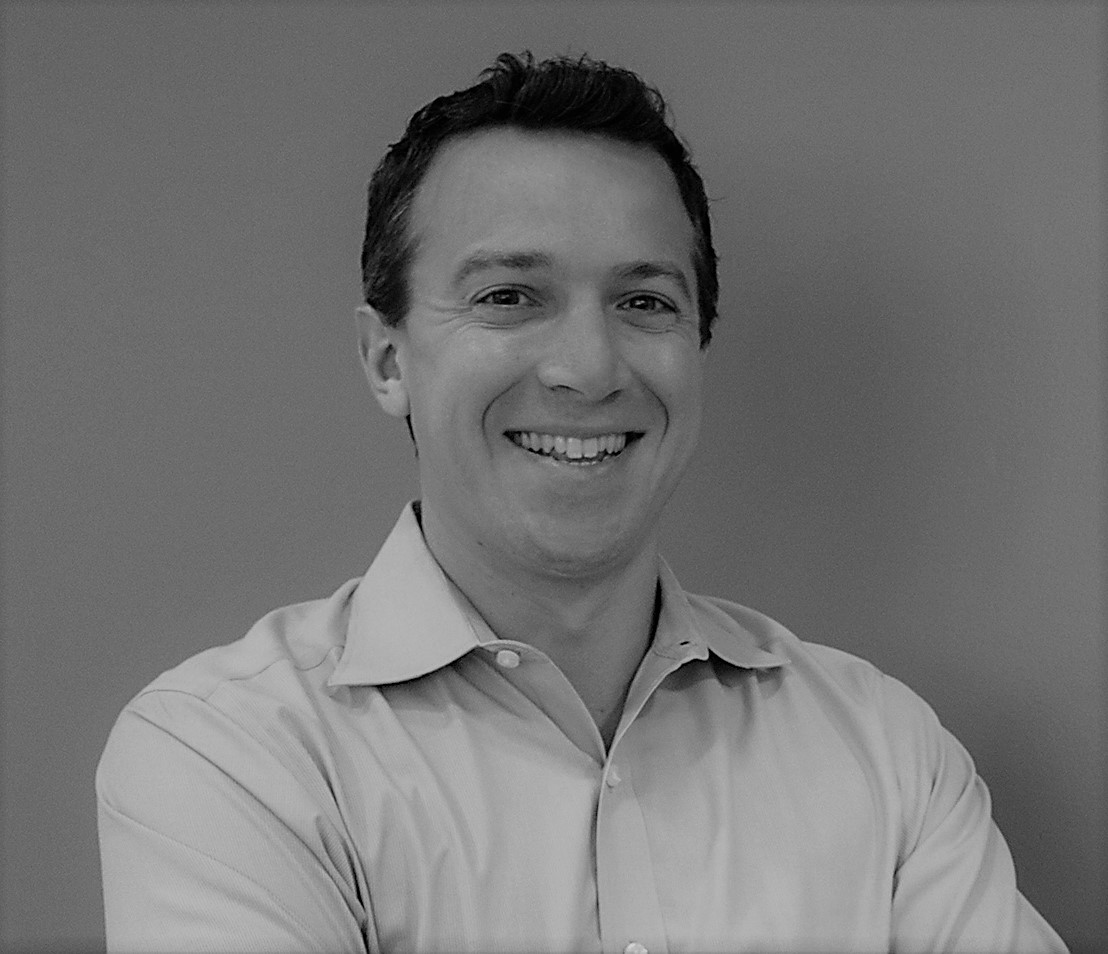
David J DiLillo, PhD
Senior Director, Immuno-Oncology, Regeneron Pharmaceuticals
David DiLillo is a Senior Director in the Immuno-Oncology department at Regeneron Pharmaceuticals in New York, where he leads a team developing novel immunotherapies to treat cancer. His team is responsible for target discovery and the preclinical development of immune cell-engaging multi-specific antibodies to treat liquid and solid tumors. His team also develops cell-based therapies and works to understand detailed mechanisms-of-action of immunotherapies in order to advance next-generation therapeutics. Dr. DiLillo holds a Ph.D. in Immunology from Duke University, where he studied non-classical B cell effector functions, and he completed his postdoctoral studies in Fc-receptor biology at the Rockefeller University.
Dr Jessica Flechtner
CSO, Genocea Biosciences
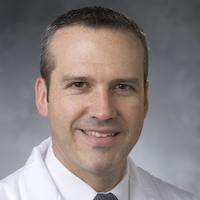
Brent A Hanks, MD, PhD
Associate Professor of Medical Oncology in the Department of Medicine and an Assistant Professor of Pharmacology and Cancer Biology at Duke University with a dual appointment with the Duke Cancer Institute
Brent A. Hanks, M.D., Ph.D. is an Associate Professor of Medical Oncology in the Department of Medicine and an Assistant Professor of Pharmacology and Cancer Biology at Duke University with a dual appointment with the Duke Cancer Institute. He currently serves as the Associate Director of Basic/Translational Research for the Duke Center for Cancer Immunotherapy and Associate Director of Translational Sciences for the Duke Melanoma Program. Dr. Hanks completed his medical degree along with a Ph.D. in tumor immunology while in the Medical Scientist Training Program at Baylor College of Medicine, and went on to complete his internal medicine residency training and his hematology and oncology fellowship training at Duke University. He now directs a basic and translational research lab focusing on understanding and treating immunotherapy resistance and immunotherapy-associated toxicities in cancer patients. In addition, as a medical oncologist he also manages patients with advanced skin cancers including melanoma and Merkel cell carcinoma.
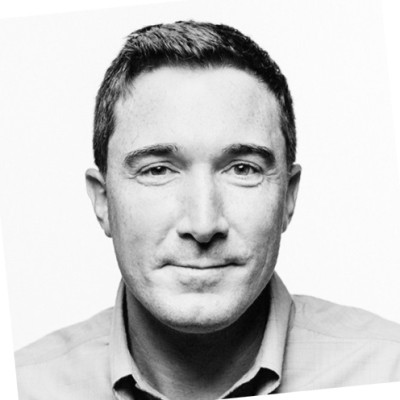
Christopher R. Heery, MD
Chief Medical Officer, Arcellx, Inc.
Dr. Chris Heery is Chief Medical Officer for Arcellx, Inc. Dr Heery was previously CMO of Precision Biosciences, Inc., where he was responsible for the overall clinical development strategy and execution across the portfolio of potential therapeutics. Before joining Precision, Chris served as Chief Medical Officer of Bavarian Nordic where he oversaw clinical development programs for the company’s immune-oncology and infectious diseases portfolios. Prior to this, he was Head of the Clinical Trials Group of the Laboratory of Tumor Immunology and Biology at the National Cancer Institute (NCI). During his time at NCI, he joined the NCI Medical Oncology Branch as a Medical Oncology Fellow in 2009 and held an Adjunct Appointment in the Genitourinary Malignancies Branch. At NCI, Chris was also part of the larger effort of the Laboratory of Tumor Immunology and Biology to create new immunotherapies for the treatment of cancer. He is board certified in medical oncology and internal medicine with primary expertise in the translational and clinical development of immunotherapies. Chris completed his internal medicine residency at the University of Illinois at Chicago after receiving his M.D. from East Carolina University Brody School of Medicine and a B.A. in English Literature from Duke University. Chris is also a member of the Board of Directors for the Chordoma Foundation and the Medical Advisory Board of Fight Colorectal Cancer. When Chris is not working, he enjoys spending time with his family and watching Duke basketball.
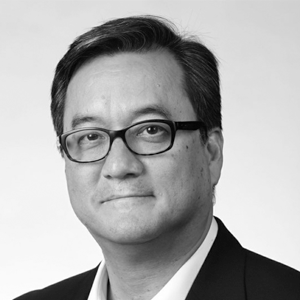
Dr Patrick Hurban
Senior Director and Global Head, Translational Genomics, Q2 Solutions
Dr. Hurban is Senior Director and Global Head of Translational Genomics at Q2 Solutions, a leading clinical trials laboratory services organization. In this role, he is responsible for the identification and implementation of new genomic capabilities, encompassing bioinformatics and wet-laboratory methods, as well as the development and validation of genomic assays to support research and clinical programs. These include broad-based screening assays, such as exome and RNA sequencing, to highly focused expression, genotyping and sequencing assay panels that target a smaller number of genes. Dr. Hurban has more than 25 years of experience in molecular genetics, including more than 18 years in positions of increasing responsibility in high-profile genomics-focused organizations. His research interests have focused on the genetic control of gene expression and have spanned diverse fields such as toxicology, developmental, and cancer biology.
Following a Bachelor’s degree in Biology from the University of North Carolina at Chapel Hill, he earned his Ph.D. in Human Genetics from the University of Utah in Salt Lake City before serving as a Postdoctoral Research Fellow of the American Cancer Society in the Department of Developmental Biology at Stanford University.
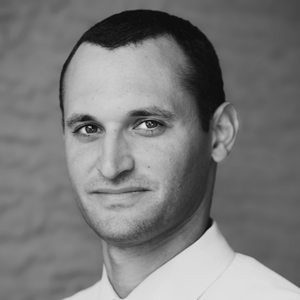
Yisrael Katz, MD
Senior Medical Director, Viracta Therapeutics
Yisrael Katz is the Senior Medical Director of Clinical Development at Viracta Therapeutics, a San Diego based clinical-stage biotechnology company novel targeted therapies for virally-associated malignancies. Prior to joining Viracta, Dr. Katz was medical director at Exelixis, supporting clinical development of multiple solid tumor programs. Prior to that, he served as lead medical expert and medical director at Calviri, where he oversaw transition of the company’s preclinical portfolio of preventative and therapeutic cancer vaccines into initial clinical trials. He continues to practice medicine as an attending physician at the University of California San Diego Medical Center. Dr. Katz received his MD from the Virginia Tech Carilion School of Medicine and completed his internal medicine residency training at Georgetown University Hospital.
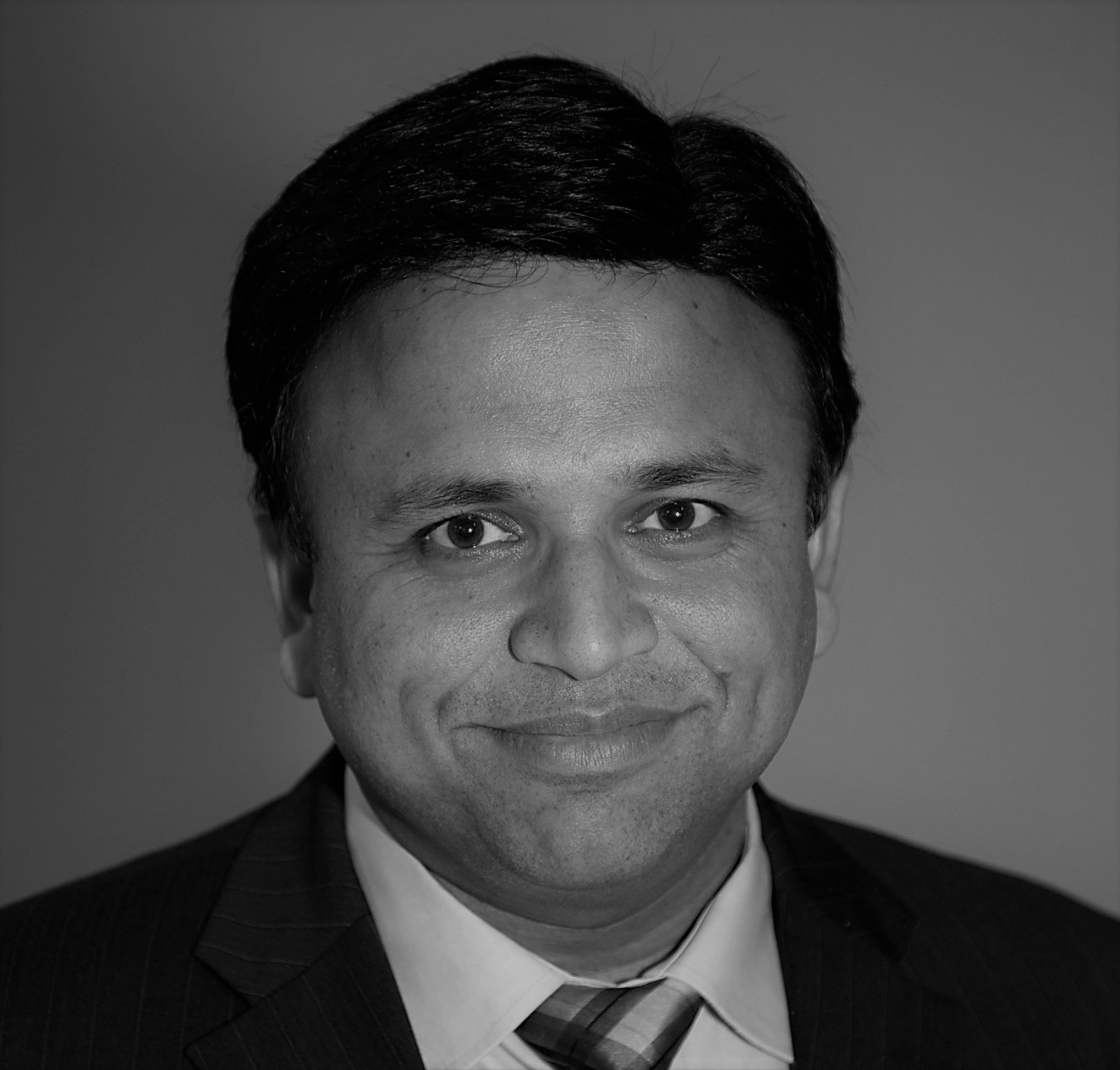
Anurag Khetan, PhD
Executive Director, Global Upstream and Cell Line Development, Biologics Development, Bristol Myers Squibb
Anurag Khetan heads the Global Upstream and Cell Line Development area of Biologics Development in Bristol-Myers Squibb based in New Jersey in USA. His end-to-end team interfaces with Discovery and Manufacturing and carries out process development of biologics and viral gene therapy programs ranging from molecular biology and analytics, cell line development, and upstream process development. Anurag has a B.Tech. in Chemical Engineering from Indian Institute of Technology, Delhi and a PhD from the Department of Chemical engineering at the University of Minnesota. Anurag has had sustained contributions over nearly two decades in the biotechnology industry at Merck, Biogen, Boehringer Ingelheim and BMS in areas ranging from early and late process development, post-approval development, manufacturing support, and GMP manufacturing.
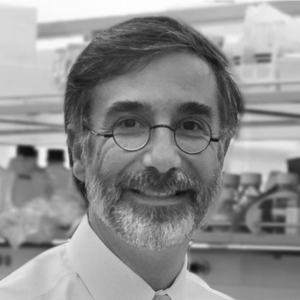
Samir N. Khleif, MD
Director of Jeannie and Tony Loop Immuno-Oncology Laboratory, Biomedical Scholar, Professor of Oncology, Georgetown University Medical Center, Lombardi Comprehensive Cancer Center
Dr. Samir N. Khleif is currently the Director of the Loop Immuno-Oncology Laboratory and is a Biomedical Scholar and a professor in Medicine and Oncology at Georgetown University Medical School at the Lombardi Comprehensive Cancer Center. He earned his medical degree from the University of Jordan, completed a residency in internal medicine from the Medical College of Ohio, and a fellowship in medical oncology from the National Cancer Institute.
Dr. Khleif is a pioneer and a leading researcher, as well as a Key Opinion Leader, in the field of immunotherapy. He was a NIH Scientist for more than 20 years and served as Chief of the Cancer Vaccine Section at the National Cancer Institute.
He previously served as the founding Director of the Georgia Cancer Center at Augusta University - the Georgia University System’s only cancer center led in conjunction with the Medical College of Georgia. He also served as the Special Assistant to the Commissioner of the Food and Drug Administration (FDA) where he led the FDA’s Transformational Critical Path Initiative for Oncology, a project that reformed the process of cancer drug development in the US.
Dr. Khleif was detailed by the US government to serve as the founder and CEO/Director General of the King Hussein Cancer Center (KHCC) in Jordan, the main cancer center in the Middle East. And then, at the request of the King of Jordan and the US government, he developed the King Hussein Institute of Biotechnology and Cancer (KHIBC) and helped Jordan reform health care and higher education.
He is an international leader and KOL on global health where he serves in an advisory capacity on both governmental and non-governmental expert bodies. He also sits on many national and international committees that are driving global oncology and the immune-oncology field forward.
Dr. Khleif has been the recipient of many national and international awards; amongst them include the National Cancer Institute’s Director Golden Star Award, the National Institutes of Health Award for Merit, the Commendation Medal of the US Public Health Service, the Georgia State Distinguished Cancer Scientists and Clinicians Award and the Lifetime Achievement Award of the Jordan Medical Association/General Union of Physicians honoring the 10 most influential physicians who contributed the most for advancing the health care system in Jordan in 50 years.
He is the editor of 3 books, the author of many peer reviewed scientific research articles and the holder of more than 20 patents.
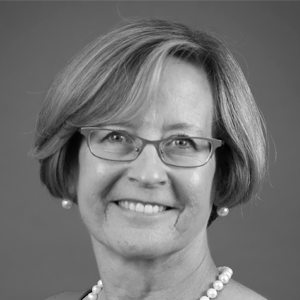
Dr Patrice Milos
Vice President, Scientific Operations, Pine Trees Health
Dr. Milos co-founded Medley Genomics to deliver novel data analytics for understanding the heterogeneity of complex diseases with an initial focus in oncology. Immediately prior, Patrice was CEO of Claritas Genomics, a pediatric molecular diagnostic company spin-out from Boston Children’s Hospital. Dr. Milos was Boston Site Head for Pfizer’s Centers of Therapeutic Innovation, establishing academic-medical center partnerships to advance novel therapies to treat human disease. She was also SVP/CSO for Helicos BioSciences in Cambridge, MA, and Executive Director for Pfizer Inc, responsible for leading a broad platform of genomics supporting the Pfizer portfolio in precision medicine. Dr. Milos chairs the Board of Directors for RI Bio, serves as an advisor for the RIHub RI Venture Mentoring Services and has served on the Rhode Island Economic Development Planning Council. Patrice is also Senior Advisor to several biotech companies and is an active NIH Grant Reviewer. She earned her MS/PhD at Rensselaer Polytechnic Institute with postdoctoral fellowships at Brown and Harvard.
Jacques Moisan, PhD
Translational Innovation Platform - Immuno-Oncology Scientific Site Head (USA), EMD Serono Research and Development Institute
Discovery team leader and scientist with extensive experience in the field of immunology with focus on biologics and small molecule drug development for cancer immunotherapy as well as rheumatology, inflammatory and autoimmune indications. Extensive experience in managing large multi-site cross-functional teams from target identification to candidate drug nomination and regulatory filings. Translational research focus in both innate and adaptive immunity relating to human, mouse and cynomolgus T lymphocytes (CD4+ and CD8+), myeloid cells, TLR biology as well as transcriptional control of T helper cell differentiation (Th1, Th2, Th17).

Jill O’Donnell-Tormey, PhD
Chief Executive Officer & Director of Scientific Affairs, Cancer Research Institute
Jill O’Donnell-Tormey, Ph.D., is chief executive officer and director of scientific affairs of the Cancer Research Institute (CRI), a nonprofit organization founded in 1953 that is today the global leader in supporting and coordinating research aimed at harnessing the immune system’s power to conquer all cancers. She joined the organization in 1987 and has been chief executive since 1993. Prior to joining CRI, she served as a research associate in the department of medicine at Cornell University Medical College and as a postdoctoral fellow in the laboratory of cellular physiology and immunology at The Rockefeller University.
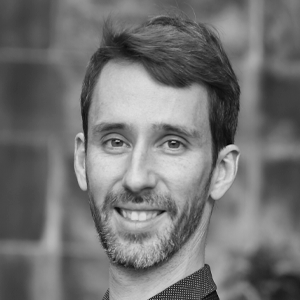
Alfredo Perales-Puchalt, MD, PhD
Vice President, Research & Development, Geneos Therapeutics
Dr. Perales-Puchalt serves as head of R&D for Geneos Therapeutics, adding his experience in Immuno-Oncology and DNA-based therapeutics. Previously he served in clinical development at Inovio Pharmaceuticals supporting the development of DNA vaccines and DNA-encoded bispecific antibodies for oncology and prior to that in academia at The Wistar Institute in the Vaccine and Immunotherapy Center. Dr. Perales-Puchalt received his MD and PhD from the University of Valencia, Spain, working on tumor immunology and immunotherapy for ovarian cancer and did his residency in Obstetrics & Gynecology. Dr. Perales-Puchalt has authored over 42 peer-reviewed manuscripts and has filed/issued multiple patent applications. He has received multiple grants and awards from government and non-government organizations including the Department of Defense, the Ovarian Cancer Research Fund, and Fundación Alonso Martin Escudero.
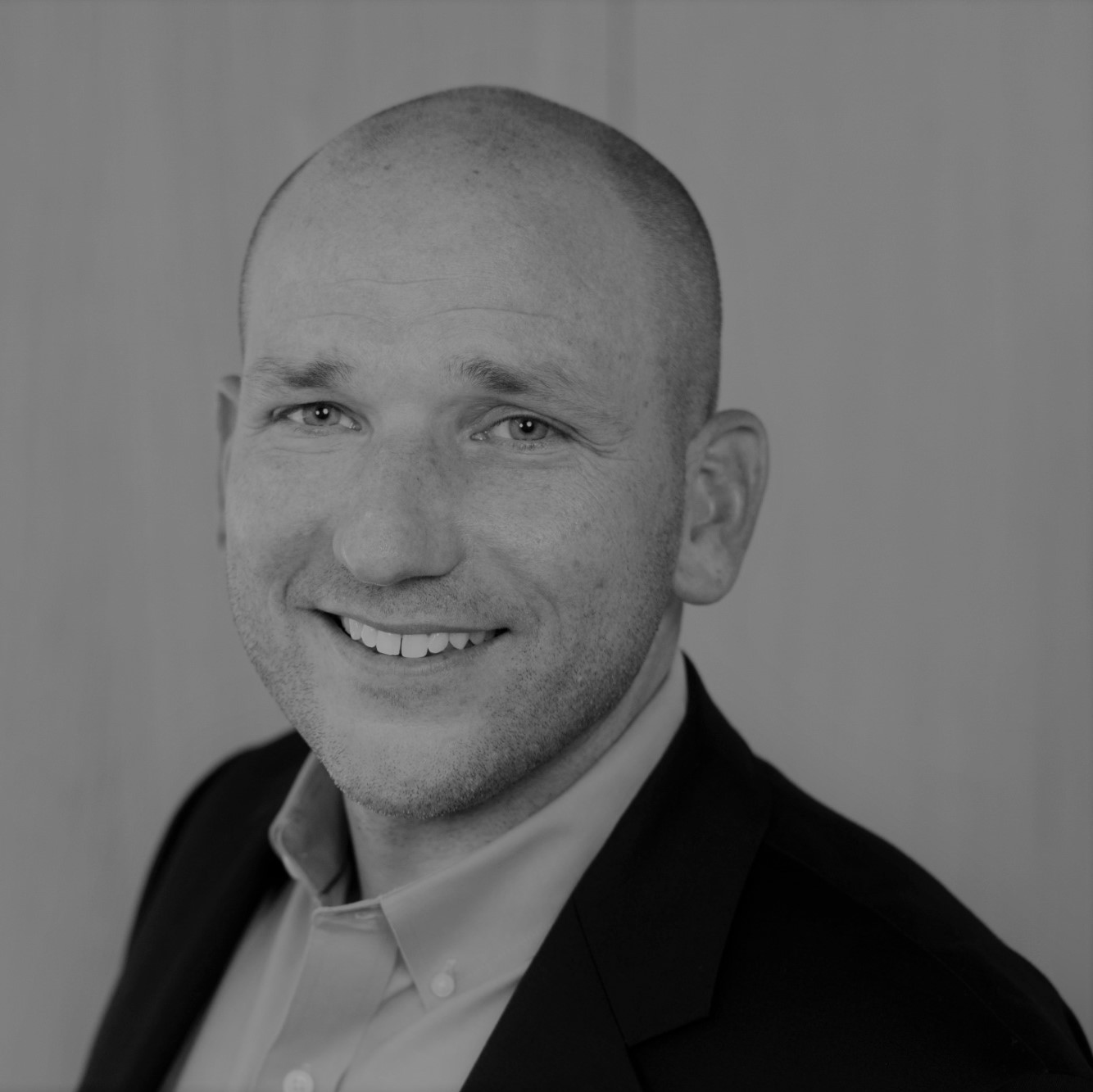
Michael Quigley, PhD
Senior Vice President, Strategy & Development, Therini Bio; Venture Partner, SV Health Investors
Dr. Quigley has spent his entire career focused on drug discovery in inflammation and oncology, both on the preclinical and translational fronts of the fields. He is currently Senior Vice President, Strategy and Development at Therini Bio and a venture partner at SV Health Investors. Most recently he was Senior Vice President of Research Biology at Gilead Sciences, overseeing the company’s biology teams and preclinical programs as well as protein biotherapeutics and computational biology and bioinformatics efforts across all therapeutic areas. Prior to that, he was Vice President and Head, Tumor Microenvironment Modulation Thematic Research Center at Bristol-Myers Squibb and site head of the company’s Redwood City, California location where he was focused on developing new therapies at the intersection of tumor, stromal and immune biology within the tumor microenvironment. Dr. Quigley previously worked in oncology discovery at MedImmune and Janssen. Dr. Quigley earned his Ph.D. degree in Immunology from Duke University and conducted post-doctoral research at the Dana Farber Cancer Institute, Department of Pediatric Oncology.
Dr Sam Saibil
Clinical Associate, Princess Margaret Cancer Centre, Toronto
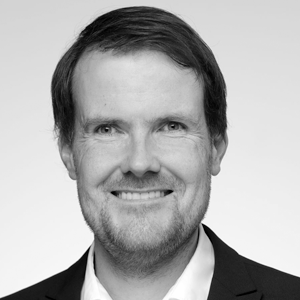
Dr Christian Schmees
Head of Tumor Biology, NMI Natural and Medical Sciences Institute at the University of Tuebingen, Germany
Christian Schmees is heading the Tumor Biology group at the Natural and Medical Sciences Institute (NMI) at the University of Tuebingen, Germany. He received his undergraduate degree in biochemistry from Tuebingen University in 2002. Since 2006 he holds a PhD (with highest honors) in cancer immunology from the Technical University of Munich, Germany. His thesis resulted in the identification of gamma-glutamyl-transpeptidase as the major factor for T cell specific immune evasion of the tumorigenic bacterium Helicobacter pylori. As a post-doc he joined the laboratories of Carl-Henrik Heldin at the Ludwig Institute for Cancer Research (LICR) in Uppsala, Sweden (2006-2010) and Philippe Bastiaens at the Max-Planck Institute of Molecular Physiology in Dortmund, Germany (2010-2011). He received fellowships from the German Research Foundation and the LICR to support his research on differential regulation of intracellular PDGF α- and β-receptor trafficking in cancer cells.
In 2011 he joined the Natural and Medical Sciences Institute at the University of Tuebingen (NMI) as a senior scientist in tumor biology and was appointed Head of Tumor Biology in 2014. Ongoing projects in his group are focusing on the development of clinically relevant cellular model systems for drug development and target validation in translational oncology. These approaches are combined with gene editing and silencing technologies as well as protein profiling and immunophenotyping platforms for mode-of-action analyses of different compound classes. Dr. Schmees is member of the Association for Cancer Immunotherapy (CIMT).
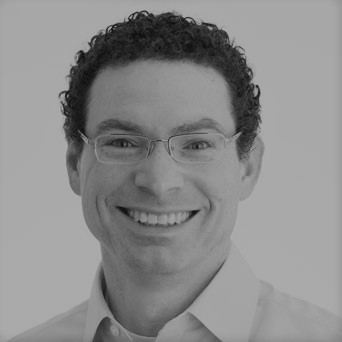
Dr Jeffrey Skolnik
Vice President, Clinical Development, Inovio Pharmaceuticals, Inc.
Dr. Skolnik leads the HPV and immuno-oncology teams at Inovio, a DNA medicines biotechnology company. Dr. Skolnik has overseen teams at both small biotechnology and large pharmaceutical companies, where he has held several leadership positions in Clinical Development and Medical Affairs. Jeffrey is a pediatric oncologist by training, and continues to serve on staff as an Attending Physician at the Children’s Hospital of Philadelphia.
.jpeg)
Robin G. Taylor, MBA, PhD
Proprietor, Taylor Global Biopharma Consulting
Robin Taylor is an independent biopharma strategy consultant with over twenty years of experience in Oncology drug development and commercialization. Most recently Robin was the Chief Commercial Officer of Seattle Genetics. Prior to that he held positions of increasing responsibility at Genentech/Roche and AstraZeneca for global commercialization of leading brands such as Herceptin, Avastin, Tarceva, Alecensa, Tecentriq, and Imfinzi. He led the Immuno-Oncology franchises at both AZ and Genentech/Roche seeking to develop synergistic IO combinations to engage the power of the immune system in restoring the lives of cancer patients. Robin holds a Ph.D. in molecular genetics from the University of Toronto, and an MBA from UC Berkeley.
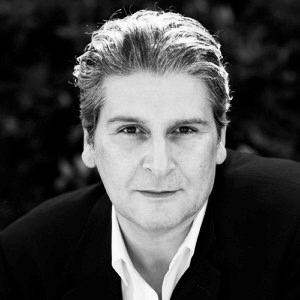
Omid Vafa, PhD, MBA
Chief Business Officer, Teneobio, Inc.
Dr. Vafa is the Chief Business Officer of Teneobio Inc. He has more than 15 years of global business and scientific experience in biotechnology and pharmaceutical drug discovery, asset evaluation, transactions and licensing. Prior to joining TeneoBio, Dr. Vafa was the Director of Strategy and Scientific Partnerships at Janssen Pharmaceutical Companies of Johnson and Johnson and the Biotechnology and Oncology Lead at the London Innovation Center of J&J. Dr. Vafa earned his doctorate at Georgetown University, his MBA from the Villanova University School of Business, and his B.S. from the University of California at Irvine. He completed his post-doctoral fellowships at The Scripps Research Institute (TSRI) and the Salk Institute for Biological Studies in La Jolla, California.